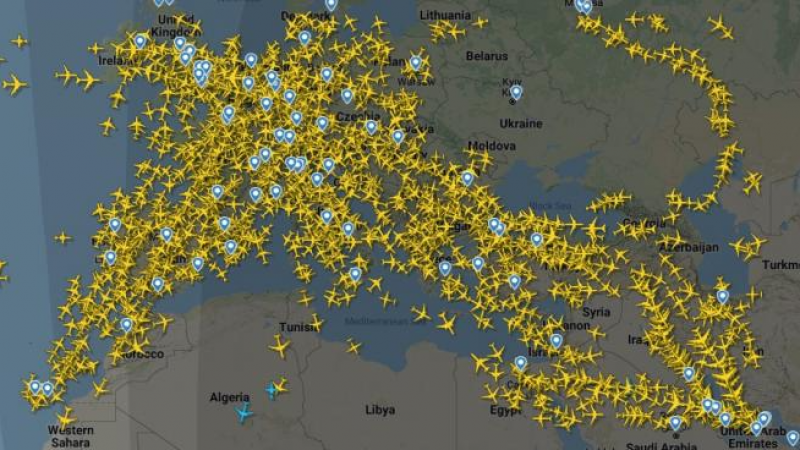article_detail
Date Published: 03/03/2022
ARCHIVED - How will the Russian airspace ban affect the Spanish economy?
Tourism, agriculture and the textile sector are all expected to take a hit in Spain

The Spanish Minister of Economic Affairs and Digital Transformation, Nadia Calviño, insisted this week that the impact on Spain of the Russia-Ukraine war will be “limited” on all levels, while acknowledging that the situation is no doubt “serious” and will almost certainly affect the economy, particularly consumer prices. This sentiment was echoed by President Sánchez, who has already announced a battery of economic measures to try and alleviate the effects of the invasion.
Nevertheless, all authorities agree that Spain is one of the “less exposed” countries due to its tenuous ties with Russia, on which it is not particularly dependent for gas and oil supplies, but there can be little argument that “the sanctions will have a cost.”
On Sunday February 27, Spain announced that it would close its airspace to Russia, and a day later, Putin retaliated by banning Spanish planes from its skies. Thankfully, the impact of this on Spain’s tourism sector will be minimal, since before the pandemic air traffic between the two countries barely represented 1% of the total.
In fact, airlines are more concerned about the rise in fuel prices resulting from the conflict and the impact of the war on consumer confidence.
“When there is a war, in many cases, consumers think twice before booking. It is still very early, but it is to be expected that if the war continues it will have an impact on the demand for transport and the long-awaited recovery,” Javier Gandara, president of the Association of Air Lines (ALA), has predicted.
What we do know is that the Spanish agricultural sector is likely to be the hardest hit, given that this country produces no cereals and so is dependent on both Russia and Ukraine for its fertilisers and grains to feed livestock. In anticipation of a supply crisis, the Region of Murcia has already announced subsidies for businesses that are forced to turn to finance because of the crisis.
With flights being halted, tourism will inevitably be affected. This sector contributed more than 10% of the national GDP in Spain before the pandemic, and while Russian traveller numbers come nowhere near the likes of the British and Germans, their absence will deal a blow this summer season.
“The cancellation of flights fundamentally affects Barcelona, Malaga, Valencia, Alicante and Madrid,” Bartomeu Deyá, vice-dean of the Faculty of Tourism at the University of the Balearic Islands (UIB), explained, with almost half of the flights to Russia in 2019 taking off from the Barcelona-El Prat aerodrome.
In terms of exports, Spain is expected to take a significant hit in sectors such as textiles and jewellery, since practically 95% of international traffic to Russia is by air and in 2020, Spain sold a whopping 239 million dollars worth of textiles and accessories to Russia.
Image: Flight Radar 24
Loading
Sign up for the Spanish News Today Editors Roundup Weekly Bulletin and get an email with all the week’s news straight to your inbox
Special offer: Subscribe now for 25% off (36.95 euros for 48 Bulletins)
OR
you can sign up to our FREE weekly roundup!
Read some of our recent bulletins:
Discount Special Offer subscription:
36.95€ for 48 Editor’s Weekly News Roundup bulletins!
Please CLICK THE BUTTON to subscribe.
(List price 3 months 12 Bulletins)
Read more stories from around Spain:
Contact Spanish News Today: Editorial 966 260 896 /
Office 968 018 268




























